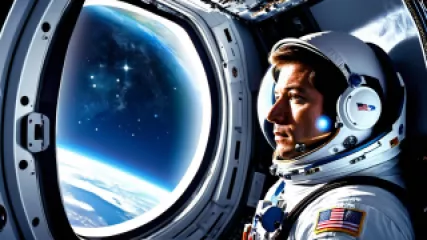Exploring Space Psychology Concepts: An Interview with a Space Psychologist
Introduction:
Space exploration has always captivated the human imagination, pushing the boundaries of what we thought was possible. But beyond the technological feats and scientific discoveries, there is a fascinating aspect that often goes unnoticed: the psychology of space. How does being in space impact the mental health and well-being of astronauts? What psychological challenges do they face during their missions? To delve into these questions, we had the privilege of interviewing Dr. Rudolph Foster, a leading space psychologist. In this interview, Dr. Foster shares his insights and experiences, shedding light on the unique field of space psychology and its importance for astronauts' mental health.
The Interplay Between Space and Mental Health
Dr. Foster explains that the psychological effects of space travel are profound. Spending extended periods in microgravity, isolated from the familiar surroundings of Earth, can lead to a range of emotional and cognitive challenges. He discusses how space-induced stressors, such as confinement, sleep disruption, and separation from loved ones, can impact an astronaut's mental well-being.
"When astronauts enter space, they experience a significant shift in their daily routine and environment," says Dr. Foster. "This change can trigger feelings of homesickness, loneliness, and even anxiety."
According to Dr. Foster, astronauts often undergo pre-mission training to prepare them for the psychological demands of space travel. They learn coping strategies, stress management techniques, and ways to maintain social connections with their colleagues and loved ones back on Earth.
Adapting to the Challenges of Space
During our conversation, Dr. Foster highlights the importance of resilience in the face of adversity. Astronauts must possess strong emotional resilience to withstand the pressures of space travel. He recounts an incident where an astronaut faced a technical malfunction during a spacewalk:
It was a critical moment for the astronaut. The equipment failure added an unexpected layer of stress and could have jeopardized the entire mission. However, through their extensive training and mental preparedness, the astronaut was able to remain calm, adapt quickly, and find a solution. This is a testament to the psychological fortitude and resilience required in the space environment.
- Dr. Rudolph Foster
Dr. Foster emphasizes that personal growth coaching plays a significant role in helping astronauts develop these essential psychological skills. Through coaching, astronauts can cultivate self-awareness, enhance their emotional intelligence, and build resilience to overcome the unique challenges they encounter in space.
The Impact of Space on Personal Growth
Space travel not only presents challenges but also provides a fertile ground for personal growth and self-discovery. Dr. Foster explains that many astronauts report transformative experiences during their time in space:
Looking down at Earth from space, seeing the beauty and fragility of our planet, often leads to a profound shift in perspective. Astronauts gain a renewed appreciation for life on Earth and a deeper understanding of the interconnectedness of humanity. This perspective can have a lasting impact on their personal growth and values.
- Dr. Rudolph Foster
Dr. Foster believes that the insights gained from space missions can be applied to personal growth coaching here on Earth. The lessons learned from space travel, such as adaptability, resilience, and gratitude, can inspire individuals to embrace personal growth and navigate life's challenges with a newfound perspective.
Future Directions in Space Psychology
As our conversation draws to a close, Dr. Foster shares his thoughts on the future of space psychology. He envisions a multidisciplinary approach, combining psychology, neuroscience, and technology, to further understand and support astronauts' mental well-being during space missions. He also emphasizes the importance of ongoing research and collaboration to address the unique psychological challenges that arise as we venture further into space.
In conclusion, the field of space psychology offers invaluable insights into the human mind and its response to the challenges of space travel. Through the expertise of professionals like Dr. Rudolph Foster, we can continue to enhance the well-being and resilience of astronauts, while also gaining a deeper understanding of personal growth and mental health here on Earth.
Disclaimer: The views and opinions expressed in this article are those of the interviewee and do not necessarily reflect the official policy or position of any space agency or organization.






